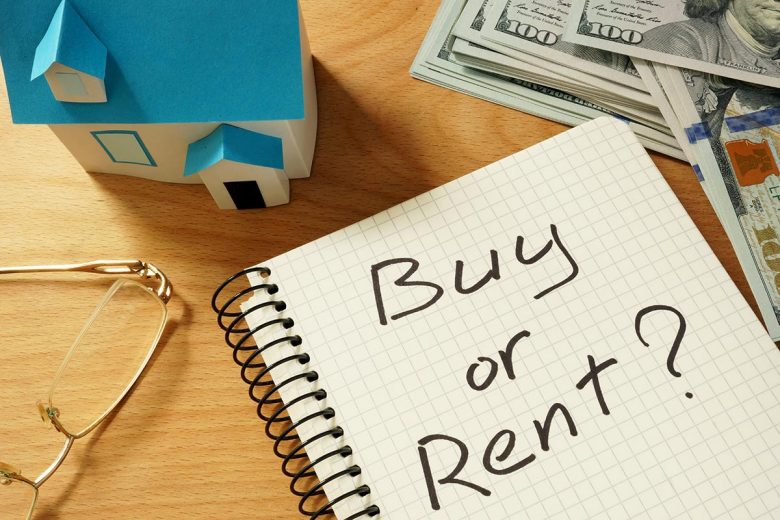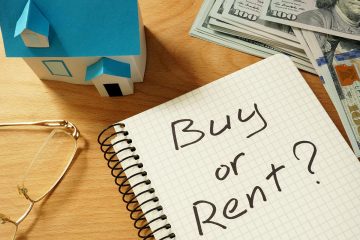Having your own place to call home is a dream many Australians have. However, the decision to rent or buy is a complicated one, since both options have their own advantages and disadvantages. It ultimately boils down to how much you can currently afford. So, let’s take a look at the pros and cons of renting and buying a home to help you make the right decision.
The benefits of renting
Offers financial flexibility
The cost of weekly rent is often cheaper than mortgage payments, and with rent you don’t have to pay a deposit or interest. The landlord is also responsible for paying the council rates and body corporate fees on the property. This means you can save this money and use it to invest or spend as you see fit.
Mobility
You can freely relocate once your lease expires and live in areas that are too expensive for you to buy in. You also don’t have to find someone to take over the lease, as it’s the responsibility of the landlord.
Low maintenance and repair costs
The landlord is responsible for maintenance and repairs, for example, fixing a leaking roof. If something like this occurs you only have to pay for your contents insurance to repair or replace any of your personal items that get damaged or go missing.
Disadvantages of renting a home
Rent increases over time
Landlords tend to increase the cost of rent on a regular basis. So, if you can no longer afford to meet your weekly rental payments due to the increase, you’ll have to find another place to live. Moreover, you’ll always have rental payments, which can be difficult to meet if you’re retired or not working.
Possible eviction
Rental leases aren’t permanent, so if the landlord wants to sell the property, they may evict you. There’s also no guarantee that your lease will be renewed when it expires, meaning you’ll have to spend time finding a new place to live.
You’re paying for the landlord’s mortgage
The money you use to pay your rent goes towards paying off your landlord’s home loan, which helps them build wealth. And since the property will never belong to you, renting doesn’t provide you with wealth creation or a return on your investment.
You can’t renovate
You don’t own the rental property, so you can’t renovate it unless you get written permission from the landlord, which can be a difficult process. Even if you do get permission, you’ll have to pay for the renovation yourself. And since you don’t own the property, you won’t see a return on investment for the renovations.
Benefits of buying a home
Gives you stability and freedom
When you own a home, you don’t have to worry about getting evicted and you can renovate the property as you wish. What’s more, once you pay off the loan, you own the property. You can then choose to rent out your home if you want to live somewhere else, and your tenant will pay off your new mortgage for you.
Value and equity increases
House prices tend to increase over time, so if you decide to sell, you might be able to make a profit off the sale. Your mortgage payments also build equity in your home, which is the amount of the property you own after your mortgage debt is subtracted. You can use this equity to invest in something like shares or a managed fund.
Tax deductions
There are tax deductions for income-generating properties, so there’s an opportunity for you to save money in the long term.
Disadvantages of buying a home
Doesn’t offer financial flexibility
After paying a large deposit on a house, you’ll have to pay off your mortgage and the interest, which can add hundreds of thousands of dollars to the cost of your initial loan. This means you may find it hard to save, spend, and invest your money.
Comes with many other costs
This includes council rates, taxes, insurance, utilities, maintenance, repairs, and more. Additionally, if you decide to sell, costs like stamp duty, conveyancing, and real estate agent fees can eat up a large amount of your equity.
House prices can fall
The value of your home may fall due to a recession, high interest rates, or the suburb it’s in has become less desirable. This means you might not make any profit when you sell your home.
Less mobility
You can’t easily and quickly move to another place if you own a home as you’ll need to sell it before buying a new one. And depending on the property market, this can take months or even years.
Other factors to consider before you make a decision
There are other factors that will impact your personal position and consequently whether it’s best for you to rent or buy a home right now, including:
- Your borrowing capacity – How much you can borrow depends on your income and any other debt you have, living expenses, assets, credit history, property deposit, home loan type, term and interest rate, and the value of your property.
- The condition of the property market – You may have to compete with wealthy foreign buyers and investors in the market. Suburbs with fewer homes or less available land often havehigher house prices. Suburbs close to transport, employment hubs, and other amenities may also be less affordable.
- Government policies – This includes policies for housing and rental assistance, as well as policies that affect housing supply and availability, plus housing standards and urban planning.
- Your goals – This includes your investment goals and appetite for risk, and your long-term life goals.
- Your personal circumstances – If you have a family and can afford to buy, go for it. If you’re single, divorced, or part of a childless couple, renting may be your best option.
Ready to rent or buy a home?
Armed with this information, we hope you’re able to decide between renting and buying a home. If you need some extra cash to pay your rental bond, house deposit or other related expenses, speak to SRG Finance today to discuss your financing options.

